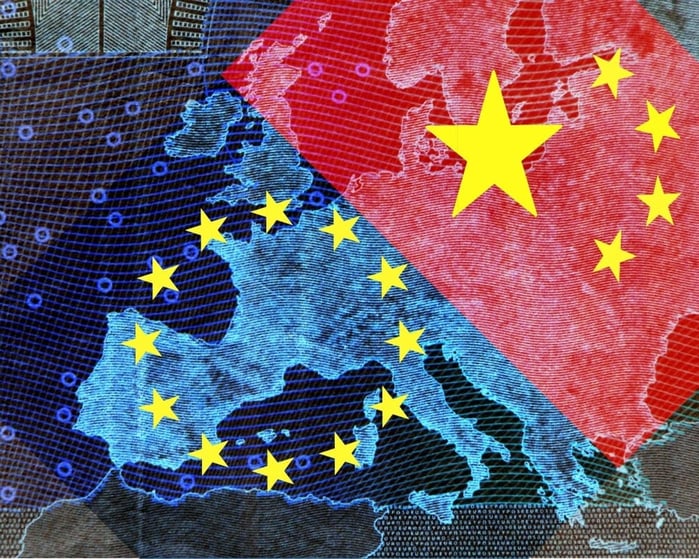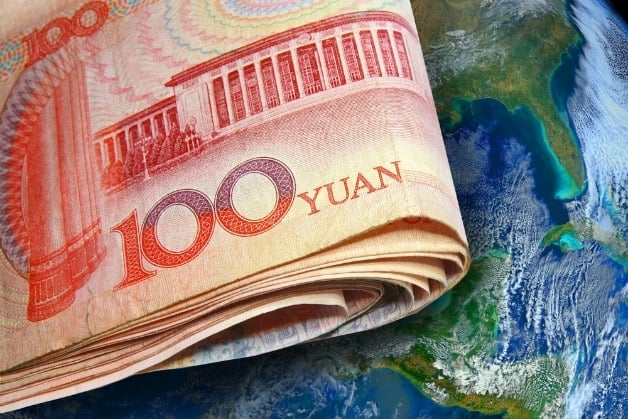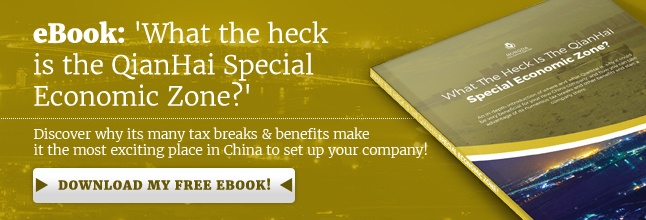Welcome to yet another edition of the Hongda Business Services Roundup. The month is already more than halfway through and time is really speeding along as we move closer to the middle of the year. This week I have got a lot of great posts lined up for you all that include an infographic on the Qianhai SEZ, the local internet and business in China, China's business affair with Europe and the great retreat of Chinese companies from the U.S. stock market at risk of hitting a snag.
This week's posts cover:
-
21 quick facts about the QianHai Special Economic Zone [Infographic]
-
Why China is investing heavily in Europe
-
How important is local internet to starting a business in China?
-
China’s record $26 billion buyout deals at risk of unraveling
Let's get right to it!
1) 21 quick facts about the QianHai Special Economic Zone [Infographic]

Anybody that knows something about Shenzhen will most certainly have heard about the 'new' Shenzhen-Hong Kong cooperation zone within its borders, more commonly known as the QianHai Special Economic Zone.
Whilst at Hongda we have already written about this special zone before, this time around we have gone through the effort of compiling an infographic that shares 21 quick facts about:
- The different areas of the QianHai Special Economic Zone
- Its preferential policies for foreign companies
- What the zone is expected to generate in terms of jobs and GDP
- Why the zone is so special
Let's take a closer look at what makes QianHai 'THE' place to be for foreign enterprises in southern China here...
>>>Tweet this infographic to your followers<<<
2) Why China is investing heavily in Europe

For long a laggard, Europe has become a preferred arena for China’s outbound investment in the West. Over the past few years, it has consistently attracted both state-run and private Chinese enterprises looking for investment opportunities, despite the historical, geographic, legal, linguistic, societal and cultural complexities of such a move.
Unlike trade and tourism, investment is about a long-term commitment best associated with a stable and legally secure environment. Whereas during the first decade of the 21st century, there was little significant Chinese investment in Europe, the figures since 2010 show a real surge.
According to a report published jointly by the law firm Baker & McKenzie and the New York-based Rhodium Group, the total stock of Chinese investments in Europe went from US$6 billion in 2010 to US$55 billion in 2014. Bruegel, a Brussels-based think tank, estimates the distribution of Chinese outbound foreign direct investment flows as follows: 19 per cent of total Chinese foreign direct investment took place in Europe (stock: US$13.9 billion) and 13 per cent in North America (stock: US$11.4 billion), which has also become an important recipient.
Chinese FDI in Europe increased by 44 per cent in 2015, and could jump dramatically this year, especially as top investor ChemChina is expected to acquire Syngenta, the Switzerland-based agri-business group, in a US$43 billion deal. In 2015, the same ChemChina purchased one of the world’s most famous tyre manufacturers, Italy’s Pirelli, for US$7.7 billion. Another major Chinese investor in Europe is Dalian Wanda, which acquired Britain’s yacht maker Sunseeker for £320 million (HK$3.6 billion) and is involved in massive property developments in Britain and France.
Five key reasons can explain why Europe has become more attractive to Chinese investors.
3) How important is local internet to starting a business in China?

Forget what you think you know about using the internet to do business.
OK, now there is a clean slate we can consider China's internet.
If you've ever been to China you may have noticed, especially if using Google Android phones, that things just aren't the same.
- Google is blocked
- Facebook is blocked
- Twitter is blocked
- Gmail is blocked
- Wordpress is blocked
- YouTube is blocked
So how on earth can you possibly get results there when your previous marketing efforts have focussed on Google Adwords, email, Facebook ads, blogging online, and perhaps even making viral videos, and all of these avenues are closed to you?
You use China's own versions of these sites!
But how can a foreign company with little knowledge of China's internet know where to start?
Here at Hongda business services we believe that Foreign companies who intend to conquer the Chinese market would be well-advised to focus on the Chinese internet's ecosystem when starting a business in China....
See which Chinese sites you need to focusing on here!
>>>Send this post into the Twittersphere!<<<
4) China’s record $26 billion buyout deals at risk of unraveling
The great retreat of Chinese companies from the U.S. stock market is hitting a snag.
Concern last week that Chinese regulators may restrict overseas-traded companies from returning home helped erase more than $5 billion in the market value of firms seeking to do so. Shares of companies from Momo Inc. to 21Vianet Group Inc. have plunged at least 20 percent since May 6 amid speculation that the management-led investor groups may back away from the buyout deals or lower their purchase prices.
The selloff marks another twist in the saga of U.S.-listed Chinese companies seeking to go private, lured by the prospect of relisting at higher valuations in Shanghai or Shenzhen. More than 40 have received buyout offers worth at least $35 billion since the beginning of 2015. About three quarters of the deals are still pending, including Qihoo 360 Technology Co., whose $9.3 billion offer is the largest.
Please let us know about any of your thoughts regarding some of the topics we recapped this week in the comments below, or let us know about any other topics you'd like for us to cover.
Have a relaxing weekend and see you all again next week for more of the posts that matter in our world!







